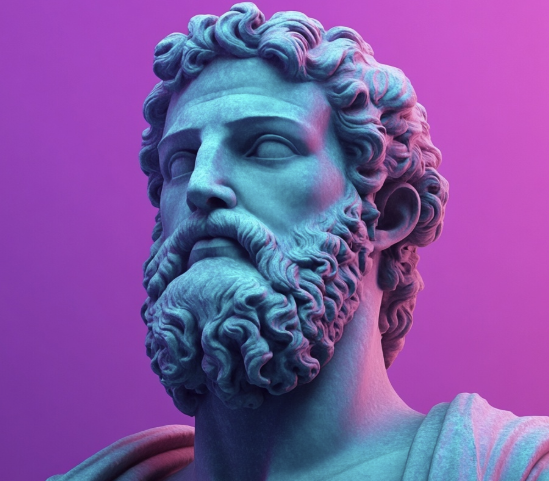
Epictetus — The Stoic Teacher of Freedom, Discipline, and Inner Strength (c. 50–135 CE)
A former slave whose quiet, razor-sharp wisdom helped define Stoicism and shaped generations seeking mastery of the self.
From Bondage to Philosophy
Epictetus was born into slavery in the Roman Empire, belonging to a wealthy official of Nero’s court. Despite the harshness of his early life, he gained permission to study philosophy and trained under the Stoic teacher Musonius Rufus. His body was frail — ancient sources claim he walked with difficulty — but his mind was formidable.
When he was freed, he began teaching in Rome. After the emperor Domitian expelled philosophers from the city, Epictetus moved to Nicopolis in Greece, where he founded a school renowned for its simplicity, discipline, and clarity of thought.
“No man is free who is not master of himself.”
What Is in Our Control
Epictetus taught that the most fundamental division in life is between what is in our control and what is not. Our opinions, choices, desires, and actions belong to us; everything else — wealth, health, reputation, the behavior of others — lies beyond our command. Peace comes from focusing on the former and accepting the latter.
This simple distinction is the backbone of Stoic ethics. It redirects energy inward, toward character and judgment, rather than outward toward unstable external conditions.
“Some things are up to us, and some are not.”
The Discipline of Desire and Aversion
Epictetus argued that suffering arises when we desire what is beyond our power or fear what we cannot avoid. By training ourselves to desire only what aligns with virtue — and to let go of anxieties about fortune — we cultivate resilience and inner strength.
To him, philosophy was not speculation but practice: a way of life requiring vigilance, honesty, and constant refinement of the will.
“When you are disturbed, do not blame what disturbs you, but your own judgment about it.”
Living According to Nature
For Epictetus, to live well is to live in accordance with reason — the distinctive human capacity that connects us to the larger order of nature. Virtue is not a lofty ideal but the steady alignment of action with rational insight. This includes honesty, justice, humility, self-control, and care for community.
He urged students to examine their daily habits, challenge false beliefs, and cultivate moral clarity moment by moment.
“First say to yourself what you would be; then do what you have to do.”
The Enchiridion and the Discourses
Epictetus wrote nothing himself. His student Arrian recorded his teachings in two works: the Discourses, a detailed collection of conversations and lessons, and the Enchiridion (“Handbook”), a concise guide to living with discipline and dignity.
These texts became foundational manuals of Stoic living, read by emperors, soldiers, monks, and modern readers looking for clarity amid turmoil.
“It is not events that disturb people, but their judgments about events.”
Legacy
Epictetus stands as one of the clearest voices of Stoicism — sharp, direct, and uncompromising. His teachings influenced Marcus Aurelius, early Christian thinkers, Enlightenment philosophers, and contemporary psychology, especially cognitive-behavioral therapy.
His message remains strikingly modern: freedom is not granted by circumstance but forged in the disciplined governance of the mind.
“You become what you give your attention to.”
CivilSimian.com created by AxiomaticPanic, CivilSimian, Kalokagathia
